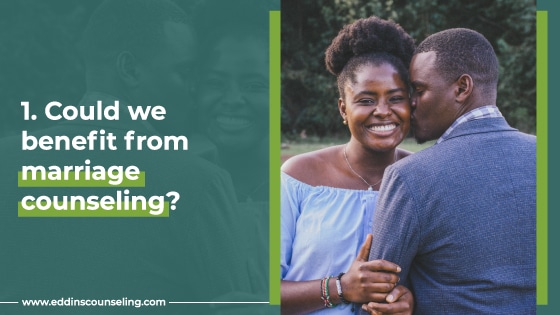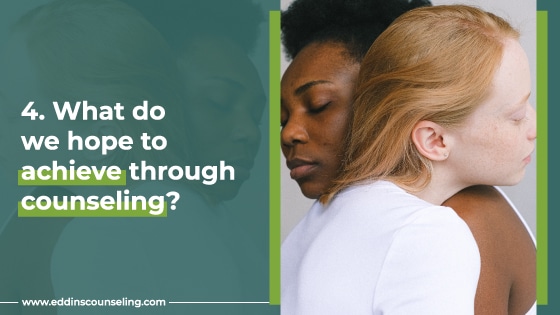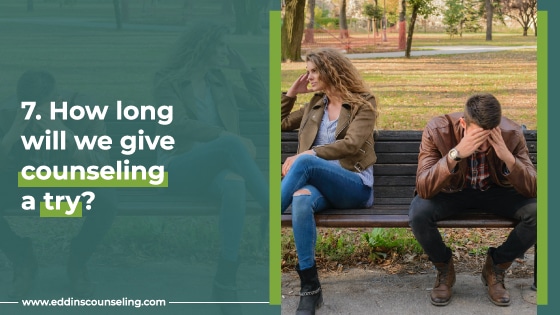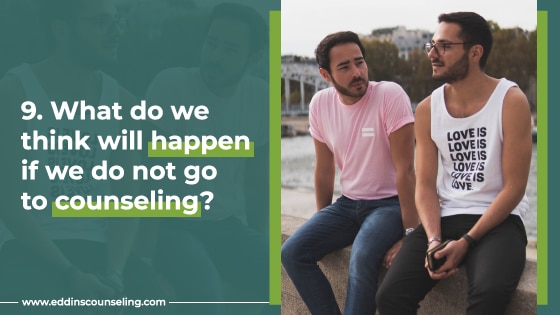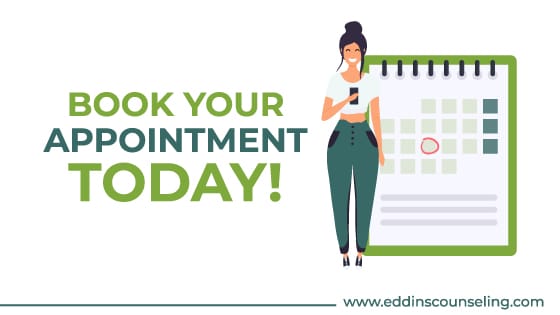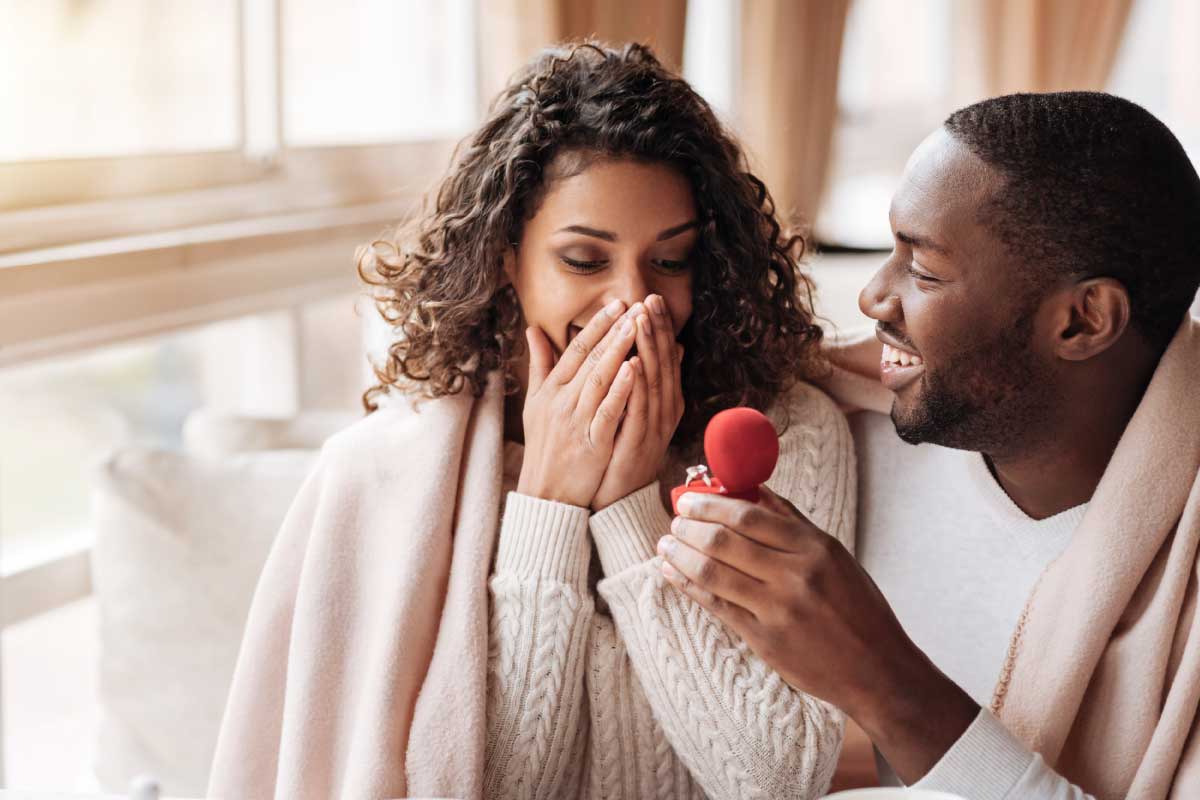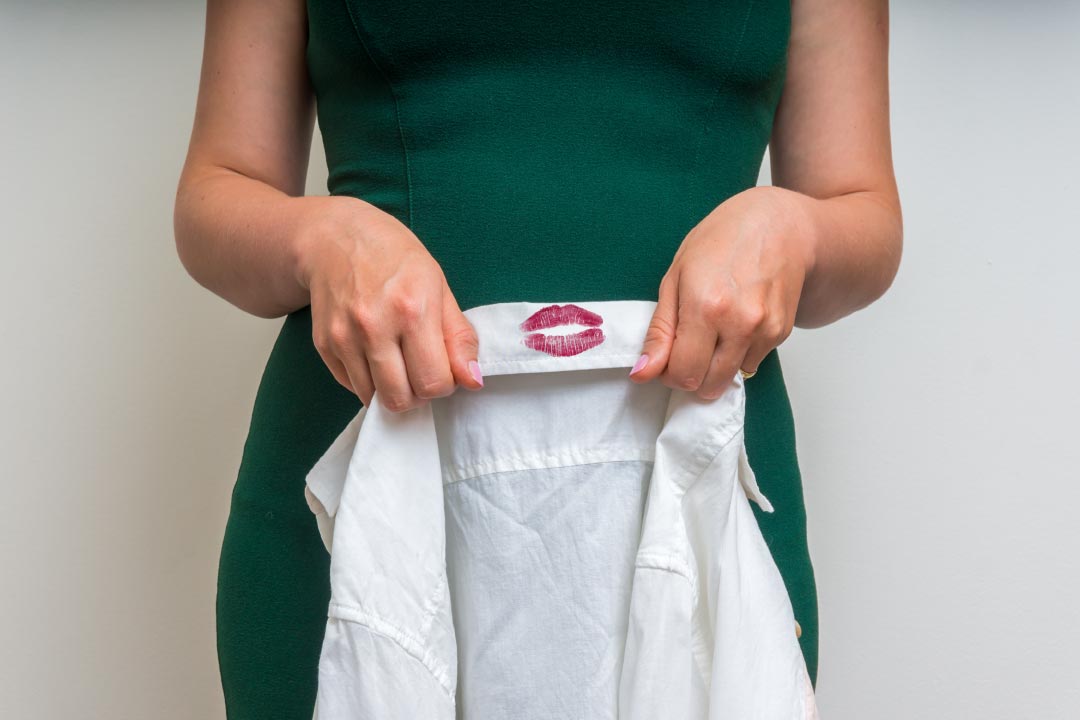April 5, 2021
Before Getting Marriage Counseling, 9 Questions to Ask
Written by Sara Lane
Posted in Relationships, Couples, Marriage and with tags: couples, marriage counseling
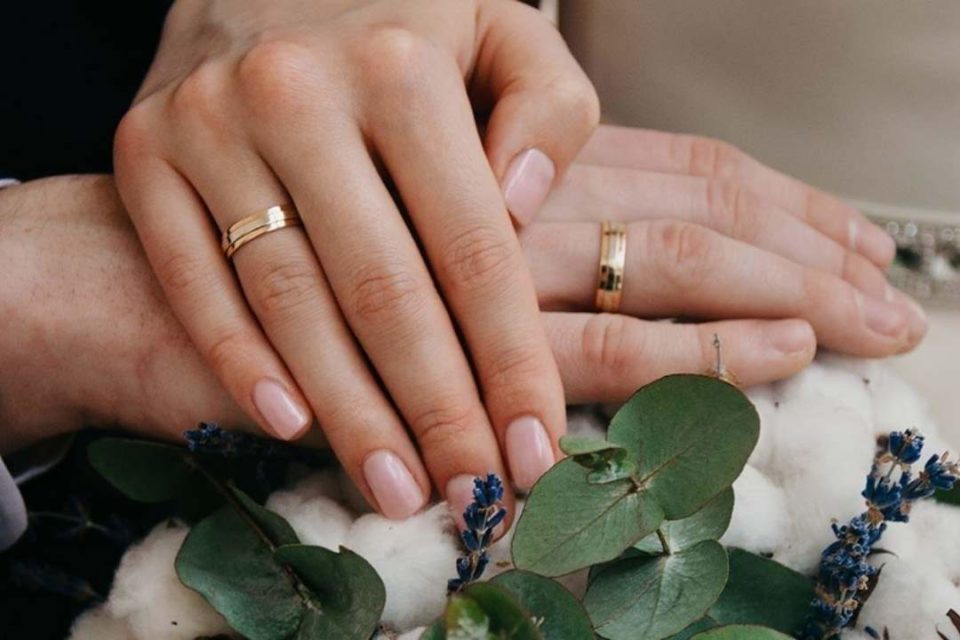
At some point in your relationship, you are likely to seek marriage counseling.
And if the idea shocks you, don’t be alarmed. Sure, you may be looking for help due to trust issues, lack of connection, or repeating arguments that seem never-ending.
But it’s just as likely that you and your partner may want to give your relationship a check-up to be sure things are running smoothly. No matter what you need, counseling is the answer.
It’s a long-term investment into the well-being of your partnership, and it’s incredibly effective for resolving issues.But before you go and book your appointment, there a few things to clear up.
Before you seek out a counselor, consider these questions and, remember, there are no wrong answers. The point is to merely establish some sort of understanding between you and your partner about what direction you want counseling to take.
Clearing up these essential details will help in your search for the right counselor and help the counselor offer the best treatment for your needs as a couple when you do begin counseling.
1. Could we benefit from marriage counseling?
A common misconception is that couples counseling is the last resort before calling it quits, which is just not true. This misconception is born from the stigma associated with counseling in general.
“Things must be terrible if you need to see a therapist.” Sure, when there is nowhere else to turn to save your relationship, counseling is an option.
This could look like a lack of trust due to infidelity or a lack of communication due to repeating patterns resulting in leaving feeling worse than when you started. If your relationship is without communication, intimacy, or understanding, it begs why you are even in the relationship?
No one is perfect. Therefore, no relationship is perfect.
You can be at any point in your partnership, marriage, or relationship and still benefit from counseling.
Try to see your relationship as objectively as possible. You may be used to your relationship functioning without much connection or consideration, but is that what you want?
Be Honest
- Is your relationship as happy as it can be?
- Do you feel understood?
- Do you feel as if your communication is as honest or helpful as it could be?
- Do you feel connected to your partner?
- Do you and your partner love each other as deeply as possible?
- Is your relationship a source of joy?
- Does your relationship provide relief from the stressors of everyday life?
If you answered no to any of these marriage counseling questions or found yourself hesitating to say yes, consider why. No matter what brought you to this point, it helps to clarify how you think your relationship got here.
2. What problems are we experiencing?
What is going on that makes you want to get counseling? Similarly, what areas have you pinpointed as problematic?
Of course, there are numerous possibilities: infidelity, disagreements over finances or child-rearing, minor differences that have grown into huge ones, career conflict, and more. You and your partner may have a difficult time answering this question.
You have likely built up your entire life around the two of you as a couple, and it can be hard to admit when cracks have formed in the foundation. 
Relationships are complicated. They can vary from joyous to stressful in a heartbeat. The concept of a shared understanding that you base your life on is inherently fragile.
Nothing is guaranteed, and you owe it to yourselves to create and enjoy a relationship that will enrich your life.
Be Specific
So, when discussing these issues. Be as specific as possible. Writing a list out together helps.
3. Do you want a divorce?
Of all the tough questions, anything relating to divorce takes the cake.
In marriage counseling, the goal is to strengthen your relationship’s aspects to help it go the distance. If one or both of you is heavily considering divorce, then those goals change.
Of course, for some couples, divorce is entirely off the table. For others, it’s just not one that they have discussed. And that kind of emotional neglect is not necessary.
Divorce can be scary, but if you are at your breaking point and you are considering leaving your partner, you have to acknowledge those feelings, and being honest will make everyone’s experience better, especially yours.
Remember, It’s Okay If You Do
For couples contemplating divorce and have a lot of shame surrounding the idea, you are not alone. Marriage counseling is used to salvage the relationship, but have you ever heard of discernment counseling, also known as divorce counseling?
4. What do we hope to achieve through counseling?
This question is another vital one. Is each of you willing to make changes?
Or do you want the other person to change? Do you want a counselor to tell you that you’re right and your spouse is wrong?
As can be seen, a happy and successful relationship is traced back to your trust, intimacy, and the ability to learn from/with your partner. All of which takes a degree of effort from both parties. A partnership is a mutual effort.
Sadly, there are a lot of couples that don’t want to put in the work required to make their relationship successful. Or by their estimation, as long as they show up or participate occasionally, then it’s enough, and it’s simply unnecessary, or they are simply too tired or busy to go beyond.
Is this your issue? Could counseling help you turn towards each other in times of chaos and stress rather than away? Could professional help turn your relationship into your refuge rather than a chore?
Some couples who go to a counselor want to get through “this,” whatever that means for them. They mostly need help working through something.
Many couples, though, are already contemplating divorce by the time they seek out counseling. If this is the case, your goals for marriage counseling will be very different.
Be Specific
Discussing these goals ahead of time is imperative to both of you having a positive experience in therapy because there will be no misunderstanding regarding either person’s intention versus the collective.
Do you need marriage counseling? Find out why you do HERE.
5. Is the level of intimacy you have satisfying both of you?
A partnership is a complicated effort that consists of many moving parts, not to mention if you have children or work professionally together. Your sex life is a critical part of the equation.
Ultimately, your marriage is sacred, just like the intimacy you share. Does that mean that you never get to talk about it?
Absolutely not.
Intimacy Beyond Sex
The intimacy in your relationship goes far beyond sexual encounters and stems from something deeper. By and large, it’s the connection and understanding at the core of your partnership with this person.
There are four types of intimacy, which include emotional, spiritual, mental, and physical.
Modern relationship culture can send mixed signals about each one’s importance, but don’t be fooled. All four are of equal importance and weight.
Suppose the level of intimacy in your relationship is not doing it for you or your partner. In that case, it’s time to do something about it, and developing an understanding of where you and your partner stand will give the therapist a more developed concept of what may or may not be ailing your relationship.
6. If we need marriage counseling, what do we expect from a counselor?
It’s helpful to think ahead about what kind of personality, approach, or even gender you’d like in a counselor. Furthermore, you and your partner may prefer someone who can gently guide you through this, at times, delicate process.
Perhaps, you both would prefer someone who is no-nonsense. You’ve had enough beating around the bush and want to get to the heart of the issue. You might have even heard of a form of couples therapy that you and your partner are interested in and are hoping to try.
All of these are things to consider before choosing a counselor.
Another way to look at this is to ask yourself what tools you want your counselor to have while assisting you. Are you battling anxiety? Does it take a took on your relationship? You may want to choose a counselor that specializes in such issues.
There are many different types of specializations a counselor can have, and choosing the one with the skillset most suited to you can enhance your experience in therapy. And each couple is unique, so you’ll want your therapist to be able to work with the individual aspects of your relationship.
Don’t Worry Though
The fact that you are willing to search for help is a pretty big deal. It’s not at all abnormal to meet a therapist that doesn’t quite fit your needs. What you and your partner feel will lead the way.
At least you are trying to have them met! At least you can acknowledge you have needs!
Your counselor is there to act as a guide, but it is ultimately up to you to take the steps required for the relationship to succeed and flourish.
Finding the right counselor is part of the process, so consider what you are working with and how that translates into what professional you choose.
7. How long will we give counseling a try?
Time heals all wounds, right?
For the most part, problems that have been around for years aren’t going to be solved in a couple of sessions. It’s essential to make a genuine commitment to counseling if you’re serious about healing your marriage.
Are you willing to stick to it long enough to gain an understanding of your issues? And if your first counselor isn’t a great fit, will you commit to trying to find someone else?
Time Commitment
Everything worth doing takes time. The deeper the issue, the more sessions it will take to diagnose and treat. Some couples find that having regular sessions as a part of their schedule helps keep their relationship in tiptop shape.
In any event, it’s crucial to be open to spending enough time with the therapist to sort out your problems thoroughly. It’s like a yoga class, though, you need only show up, and you are making progress.
8. What can we do, and what have we done on our own to improve our relationship?
Marriage takes work to thrive and grow. Depending on your situation and your problems’ depth, you can take proactive steps together to reconnect. You can read books, look up online resources, and go to marriage conferences.
Along these same lines, many counselors will give you homework to do outside of sessions. Healing requires active participation.
You’ll ultimately have to find what works for you and your partner as individuals. This may take some searching and general research, but your relationship will be better for it.
Read more HERE on why you need marriage counseling.
9. What do we think will happen if we do not go to counseling?
This question is an essential issue to consider, as it is technically an option, albeit a risky one.
Perhaps you don’t feel like your problems are that serious right now. That’s not an uncommon line of thinking. You have minor grievances and annoyances, but you can move past them or “they aren’t too bad.”
But someday, they will be.
Give it a year or two, and you could be filing for divorce. Often couples feel they just don’t have the time to deal with “the little stuff,” but eventually, you’ll look back and realize the little stuff is the big stuff.
Early action is essential because it can make a world of difference. Without marriage counseling, you will probably remain stuck in cycles and patterns of pain and misunderstanding. You won’t enjoy your relationship; instead, you will grow to resent it.
Why You Need Marriage Counseling
If you are worried about the future of your relationship, don’t ignore that feeling.
Moreover, if you find yourself in the same perpetual arguments, struggles or feelings, you are not alone. If you and your spouse are struggling, it can be a little scary to reach out.
As always, we are here for you. Learn more about cultivating a happy and healthy relationship with couples counseling.
Contact one of our relationship counselors in Houston to find out more or read more about our marriage counseling services help with your relationship.
To get started now, give us a call to schedule an appointment at 832-323-1396 or schedule an appointment online.
We offer marriage counseling to same-sex couples and other members of the LGBTQ+ community. You are more than welcome at Eddins Counseling Group!
Grounding & Self Soothing
Get instant access to your free ebook.

